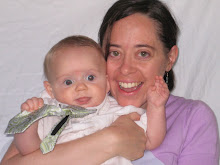new resources
Just this week I was introduced to a new resource for poverty discussions and was reacquainted with an old one.
modestneeds.org
A friend passed on a link to this website, which has a rather interesting approach to connecting donors with individuals and organizations seeking funds: instead of having an organization seek out donors individually, this website collects "Requests for Help" from these organizations in need and then lets a donor peruse the site to find a complementary fit.
The idea reminds me a bit of kiva. org, where donors can choose from a list of microenterprising individuals and give out loans to those they select. Hence, the donors can do some one-stop shopping for meeting their philanthropic desires.
I'm interested in the success rate of these kinds of websites?
Aspen Institute FIELD Program
Two summers ago I did research work for the Aspen Institute, a thinktank in D.C., through a local microenterprise organization. The data I collected contributed to the FIELD program, which seeks to better understand microenterprise ventures in the United States. The Aspen Institute recently sent me a case study detailing how one nonprofit organization is trying to beef up its earned income to be less dependent on grants. The timing seemed apropos with a wavering economy that will surely cut the generosity of donors as they start to feel pinched.
One thing I really like about nonprofits is that they are in a unique sector which demands constant innovative thinking to be able to even stay afloat, let alone get to a stable position on land. As long as the need for innovation isn't overwhelming, working in a nonprofit can be invigorating and challenging every day.
modestneeds.org
A friend passed on a link to this website, which has a rather interesting approach to connecting donors with individuals and organizations seeking funds: instead of having an organization seek out donors individually, this website collects "Requests for Help" from these organizations in need and then lets a donor peruse the site to find a complementary fit.
The idea reminds me a bit of kiva. org, where donors can choose from a list of microenterprising individuals and give out loans to those they select. Hence, the donors can do some one-stop shopping for meeting their philanthropic desires.
I'm interested in the success rate of these kinds of websites?
Aspen Institute FIELD Program
Two summers ago I did research work for the Aspen Institute, a thinktank in D.C., through a local microenterprise organization. The data I collected contributed to the FIELD program, which seeks to better understand microenterprise ventures in the United States. The Aspen Institute recently sent me a case study detailing how one nonprofit organization is trying to beef up its earned income to be less dependent on grants. The timing seemed apropos with a wavering economy that will surely cut the generosity of donors as they start to feel pinched.
One thing I really like about nonprofits is that they are in a unique sector which demands constant innovative thinking to be able to even stay afloat, let alone get to a stable position on land. As long as the need for innovation isn't overwhelming, working in a nonprofit can be invigorating and challenging every day.

